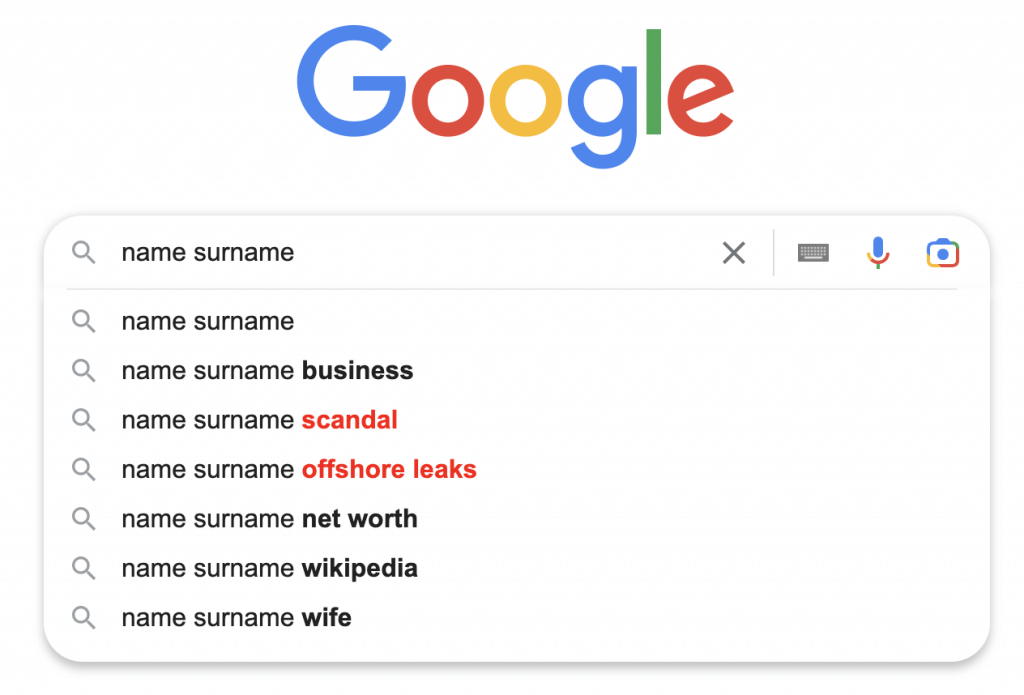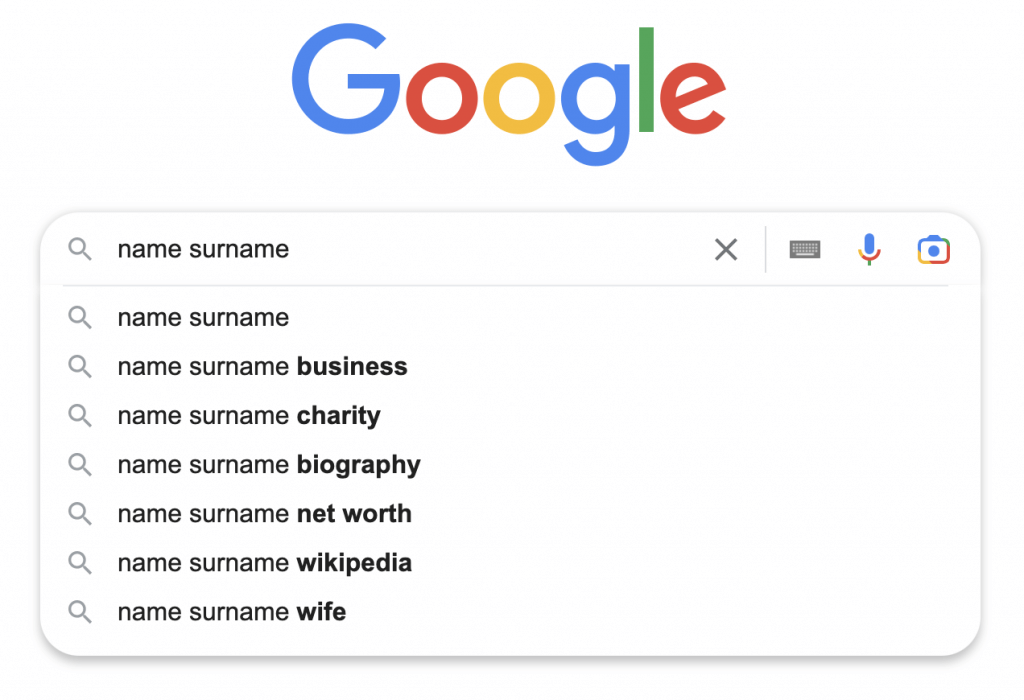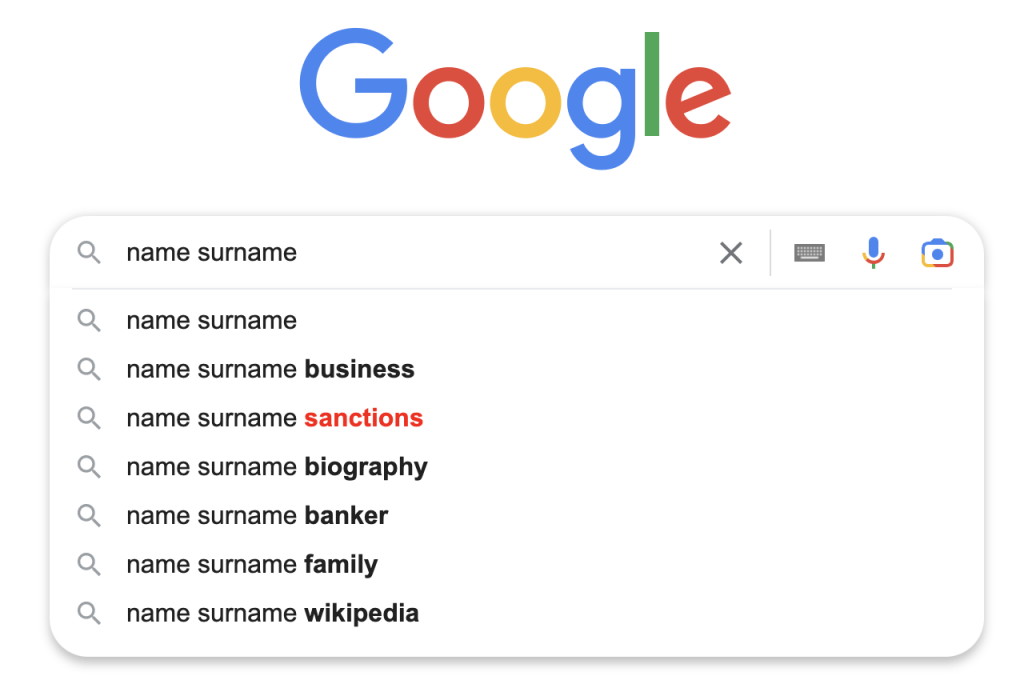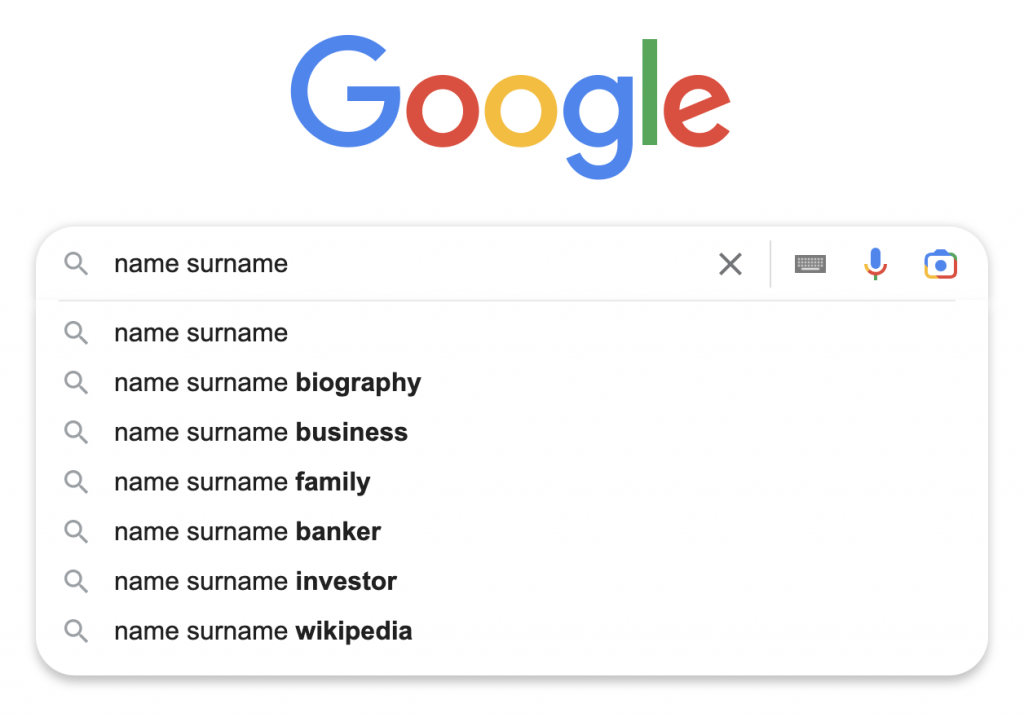

There are countless options for everyone in the contemporary media landscape. By building a personal brand, i.e., a self-image on the Internet, anyone can raise the number of subscribers on social networks, position themselves as an expert on specialized resources, or attract a larger audience. And for individuals whose careers depend on publicity—celebrities, politicians, and businessmen—the significance of online reputation management cannot be overestimated. In the digital era, a negative review posted by a user or competitor can have a far greater impact than TV ads. There are numerous instances in which a career has been jeopardized by a seemingly unimportant detail. At the same time, keeping a positive online image is essential for engaging with key business partners, executing crucial negotiations, and determining not only the success of individuals but also the success of the businesses they own.
Even though a set of steps to build and strengthen a personal brand depends a lot on the specifics of a business or person, there are some things that are important for everyone. For example, applying query suggestions. How is it possible to eliminate search suggestions that are false or have a negative effect on reputation?
Why is it essential to utilize search suggestions?
It is no secret that the great majority of Internet users today pay close attention to online comments. In addition, the first step in any information search is always a search engine query. Thus, if the majority of tips contain positive information, this will improve customer loyalty. In other circumstances, however, negative information found in search suggestions can not only divert people’s attention from the original argument but also cause them to focus on the search for negative information, thereby damaging the business reputation.
Even if a person has a good name, bad things can happen to them for reasons that have nothing to do with them.
- Because of the viral effect, the idea of one user spread through social networks. For instance, the successful fitness blogger and businesswoman can be frequently searched for the phrase “Name, Surname, before and after plastic surgery” rather than “Name, Surname, what she is known for,” despite the fact that her athletic figure is the result of regular exercise and a healthy lifestyle in general.
- A one-time mistake or statement taken out of context that, when it was repeated, came to pique the curiosity of an increasing number of people. Overnight, interest in a company’s owner can shift from “Name Surname net worth” to “Name Surname bankrupt.”
- The actions of competitors or other unfriendly individuals who focus solely on the negative aspects of your biography. A well-known blogger can appear in the Google query suggestions as “Name Surname tax problem.”
In the development of any business today and the building of a personal brand, it is crucial to know not only how to get into query suggestions but also how to delete search suggestions that can damage the results of years of effort spent building a reputation.
What function do search suggestions serve?
Google introduced its Search Suggestions feature in the mid-2000s as an experimental algorithm. Today, each input of a Google search query is accompanied by the appearance of a pop-up window containing search suggestions. Originally, this feature was intended to give the user more search results. But for the time being, the hints also save time when entering information, help avoid spelling errors, and automatically recognize the incorrect keyboard layout.
Google Search Suggestions is also an essential tool for driving engagement, boosting conversions, and monetising your business and personal brand.
The variety of search suggestions and the algorithm for their formation
Since the search suggestion feature was first introduced, it has been improved in many ways. Today, most search engines include the following in their suggestions:
- Filters that remove intentionally offensive terms or misspelled words and combine inquiries with comparable topics. For example, “what’s new in the world” and “what’s new in business”.
- Linguistic characteristics and user localization. For instance, a resident of Barcelona who requests “weather” will initially receive regional weather conditions.
- Arguments that are most commonly given by a person are normally highlighted in a different color.
Similarly, until a certain time, reaching the top lines of suggestions could be secured by increasing the number of input combinations; thus, modern search suggestion algorithms began to analyze the density of requests in addition to their quality, i.e., their utility for users. And, of course, the list of clues is regularly updated to contain only the most frequently submitted words and combinations.
The ongoing improvement of the algorithm for selecting hints has resulted in the current ability to identify the following categories of hints:
- Complement the initially entered words, allowing possibilities to be chosen from a list. Appear on desktop versions;
- Provide one word at a time before forming the complete inquiry. This option is used to see users of mobile devices;
- Respond to certain key queries, such as weather conditions or a series of frequently requested series;
- Characterized by an increased length and low frequency, but they accurately express the question of a particular person;
- Provide information that the same user has previously requested.
How is it possible to eliminate unwanted phrases from the search bar?
Even though advanced users can remove search suggestions in Google on their computer (or mobile device) with a couple of clicks, this only applies to personal browser settings; other users will continue to see all suggestions, including those that discredit reputation. So, it is important to keep an eye on the suggested set and get rid of any bad information right away. This can be accomplished in one of three ways (or a combination of them):
- Increase positive content.
- Generate news items that are certain to capture the interest of a large audience.
- Resort to latent semantic indexing, that is, the displacement of unwanted phrases by positive keywords.
It is essential to remember that this process is difficult and time-consuming. It can take up to two months. In addition to the fact that work with suggestions should be carried out continuously and involve a variety of steps for optimal results, it must be supplemented by an effective and well-executed advertising campaign, posting materials on key websites, and other relevant reputation management techniques. As a result, specialists typically carry out such work. For instance, at the ADVES reputation management agency, complex work is performed with suggestions in Google search engines: damaging suggestions are removed and replaced with favorable requests using our own algorithms.
That is, the following amazing results are possible:
Case 1. The removal of negative suggestions (“Name Surname scandal” and “Name Surname offshore leaks”) from the Google Switzerland search engine’s results for the key query “Name Surname.” Due to the sensitivity of personal information, it is not possible to provide initials.

Results. It took ADVES three weeks to remove negative indicators and replace them with new, positive ones.

Case 2. The removal of a negative hint that is related to the name of a prominent and well-known banker from the Google UK search engine.

Results. It took ADVES professionals a little over 4 weeks to give the list of suggestions a positive look.

One of the world’s wealthiest individuals, American entrepreneur Warren Buffett, noted that it can take months or even years to build a reputation and five minutes to ruin it. So, think carefully about the pros and cons of self-promotion of a personal brand.
Conclusion
Effective management of search suggestions is one of the essential success factors both in business development and in developing a personal brand because the majority of user requests begin with a search query. Negative clues might occur for many reasons, but the crucial thing is to swiftly monitor such information and promptly replace it with positive keywords, new positive content, or newsworthy events.
